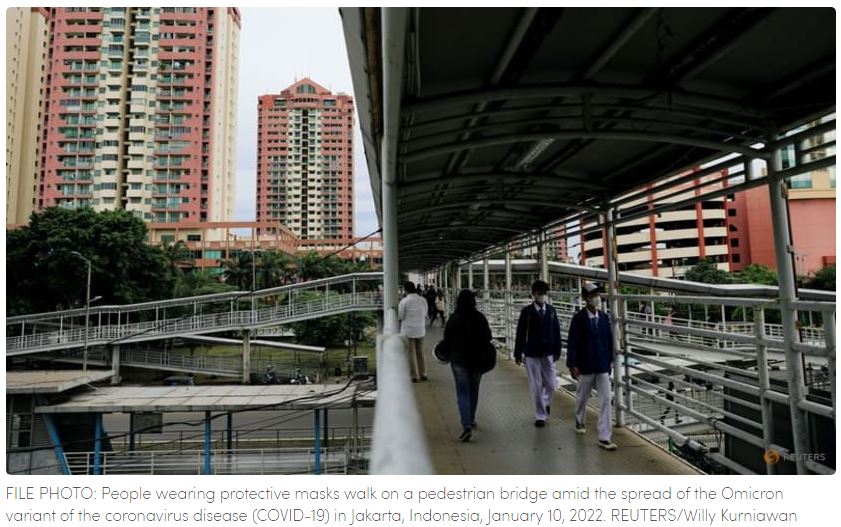Indonesia’s annual economic growth likely held steady in Q1- Reuters poll
BENGALURU : Indonesia’s annual economic growth likely remained steady in the first quarter as commodities exports partly offset weak consumer spending due to mobility curbs imposed to stop the spread of the Omicron coronavirus variant, a Reuters poll found.
Southeast Asia’s largest economy expanded 5.00 per cent in January-March, compared to the same period a year earlier, the median forecast of 19 economists in the poll showed.
“We expect resilient demand and terms of trade gains due to (the) commodities cycle to partly offset the impact of tighter mobility measures in 1Q22,” said Radhika Rao, senior economist at DBS.
On a quarterly basis, the resource-rich economy was predicted to have contracted 0.89 per cent last quarter from the previous three-month period, after growing 1.06 per cent in October-December. That was based on a smaller sample of forecasts.
The data is due to be released on May 9.
“We expect GDP to shrink on a quarterly basis due to mobility restrictions. We saw indicators such as retail sales, mobility, PMI manufacturing were lower in 1Q22 compared to the previous quarter,” said Irman Faiz, an economist at Bank Danamon.
“Also, Indonesia’s economic activities are usually lower in the beginning of the year compared to year-end.”
Although most quarantine rules have been lifted to end two years of border closures, President Joko Widodo has warned Indonesians of tough times ahead amid global economic and political turbulence.
That, along with a slowing economy in China, the country’s largest trading partner, has threatened to derail Indonesia’s growth momentum.
However, surging commodity prices are expected to benefit Indonesia and help cushion the blow from global monetary policy tightening including aggressive U.S. Federal Reserve rate hikes, which in the past have triggered capital outflows and volatility in the rupiah.
Bank Indonesia lowered its economic growth outlook for the year to 4.5 per cent-5.3 per cent, from 4.7 per cent-5.5 per cent previously, citing slower global growth and disruptions in world trade from the Ukraine-Russia war.
Growth was forecast to average 5.2 per cent this year and next, a separate Reuters poll found, in line with the recently trimmed growth projections by BI and the International Monetary Fund.


 English
English




